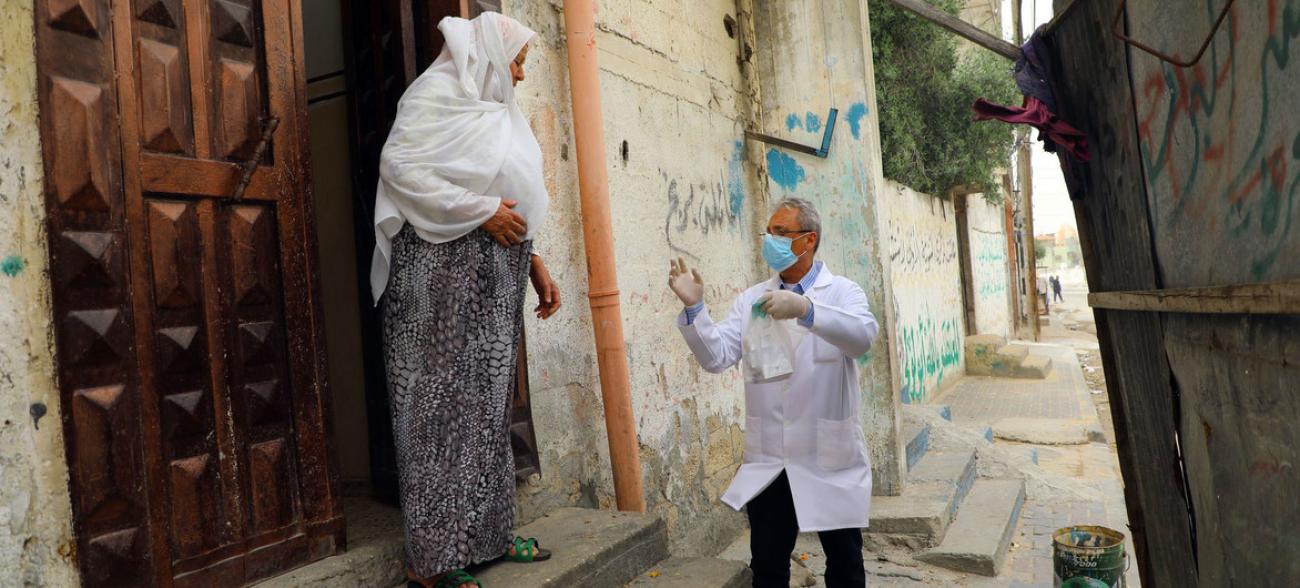Photo: UNRWA/Khalil Adwan. Health staff from the Shaboura Health Centre in Rafah, Gaza, run by UN relief agency UNRWA, deliver medications directly to elderly Palestine refugees in the wake of COVID-19, so reduce their chances of exposure.
Since the start of the month, an average of 80,000 cases of COVID-19 have been reported each day to the World Health Organization (WHO), the agency’s chief told journalists listening in to his virtual press conference on May 6.
“But these are not just numbers – every single case is a mother, a father, a son, a daughter, a brother, sister or friend”, said Tedros Adhanom Ghebreyesus, the WHO Director-General.
The global caseload for COVID-19 has surpassed 3.5 million, with nearly 250,000 deaths.
Although numbers are declining in Western Europe, WHO said more cases are being reported every day from Eastern Europe, Africa, South-East Asia, the Eastern Mediterranean and the Americas.
However, even within regions and within countries, there are divergent trends, the agency added.
With more countries considering easing restrictions implemented to curb the spread of the new coronavirus, WHO has again reminded authorities of the need to maintain vigilance.
“The risk of returning to lockdown remains very real if countries do not manage the transition extremely carefully, and in a phased approach,” Tedros warned.
He urged countries to consider the UN agency’s six criteria for lifting stay-at-home measures.
That advice includes ensuring surveillance is strong, cases are declining and transmission is controlled. Health systems also must be able to detect, isolate, test and treat cases, and to trace all contacts.
dditionally, the risk of outbreak in settings such as health facilities and nursing homes needs to be minimized, while schools, workplaces and other public locations should have preventive measures in place.
Countries must also be able to manage any risk of the disease being imported into their territories, and communities should be fully educated to adjust to what will be a “new norm”.
As countries press forward in the common fight against COVID-19, Tedros said they should also lay the groundwork for resilient health systems globally.
“The COVID-19 pandemic will eventually recede, but there can be no going back to business as usual”, he stated. “We cannot continue to rush to fund panic but let preparedness go by the wayside”.
Tedros said the crisis has highlighted the importance of strong national health systems as the foundation of global health security: not only against pandemics but also against the multitude of health threats that people across the world face every day.
“If we learn anything from COVID-19, it must be that investing in health now will save lives later”, he said.



